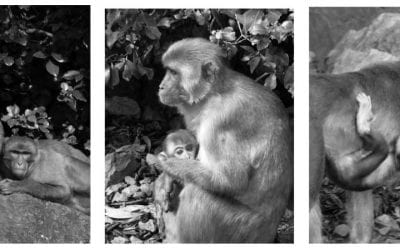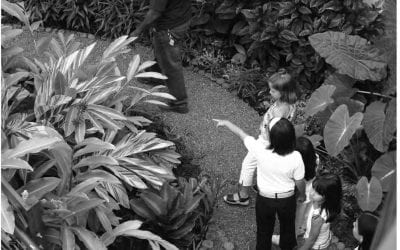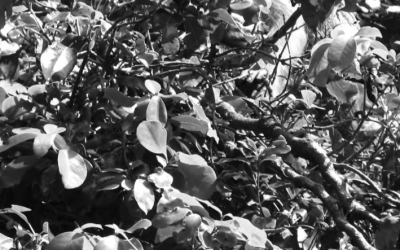Making a Difference: The Bolivian Street Children Project
At 12,000 feet, you can feel the effects of the altitude every step you take. But a group of seven women from Harvard did not let that stop them from two months of in-depth work in the world’s highest capital city, La Paz, Bolivia. After preparing during spring semester, the group flew south in June 2007 to spend two months volunteering with the Bolivian Street Children Project. Three of us had just graduated from Harvard’s Graduate School of Education (one being me, as an Ed.M in Human Development and Psychology); two had just graduated from Harvard College; and two were continuing their studies at both the Graduate School of Education and the College. Together we formed a team and took an amazing journey as a part of a very special project.
The Bolivian Street Children Project (BSCP) was originally started by Chi Huang as a Harvard Medical School student. After spending time in Bolivia volunteering with a church to meet the medical needs of orphanages and children’s homes, Chi had a dream to help the many children who were living out on the streets of La Paz. The realization of this dream started small; he brought a young boy living on the streets back to the church to give him shelter and food. But after years of fundraising and planning, he was able to build new homes, and with the help of an incredible staff, to create a family for former street children through the Bolivian Street Children Project.
Before even endeavoring to work with the BSCP, we needed to learn more about their situation and the context of our entry into their world. Chi’s wife, Kristin Huang, a current doctoral student at the Harvard Graduate School of Education, has been integral in creating the programs for the BSCP boys. The last few years she has organized a group of students from Harvard to go down to Bolivia with new projects and enthusiasm. Catherine Ayoub, who holds a joint appointment at Harvard Medical School and the Graduate School of Education, co-taught the seminar with Kristin Huang, bringing her expertise in child trauma to enhance our understanding of the boys’ situations. Over the course of the spring semester, we prepared for our summer work by meeting every week in a seminar style to discuss Bolivian politics, culture, and the problems of street children. Our goal was to develop projects for the boys in the homes that would enrich their experiences and help them think about and plan their futures. Over time we also became a close group and a cohesive team. Because this was a volunteer opportunity, we also fundraised together, and with the generous help of the David Rockefeller Center for Latin American Studies at Harvard, were able to cover our plane flights and living expenses in Bolivia.
When we arrived in June, we had many ideas and theories as well as lesson plans and schedules. Meeting the boys was beyond any possible preparation. In a walk through La Paz, Chi pointed out where he found some of the boys—in an abandoned building or hiding in a tree. And now, after many ups and downs, these boys are attending school and living in a home with a family. Every day we worked on our projects with them, alternating between working on the newspaper and a movie, developing career and life goals, as well as planning a final event. Each day we made some progress together, teaching the boys important lessons of goal making and attaining, as well as trying new things through writing, photography and film.
Our end products, a community newspaper and film, showed the great talent and strength of the boys. The newspaper was named Sueños, or dreams, after Chi’s dreams for them and for the organization. It was filled with photographs of the home, the new football field and favorite dogs, as well as the boys playing soccer. The boys wrote articles about school, global-warming, football tournaments and life-plans. After printing out color copies of the paper and distributing it among the many “editors,” it was wonderful to see the great pride the boys could take in their work.
When we talked about their future plans, they talked of great professional goals like becoming an engineer, doctor or psychologist, as well as having their own homes and families. We brought in local people who had become professionals and could talk about their journeys and the importance of study.
Spending two months immersed in another culture is an incredible experience. But getting to know and love a group of extraordinary boys, now becoming young men, was unique and something I will always cherish. We had time to travel around Bolivia on weekends and after our project had ended, but the time spent with the boys is my real memory of the country and hope for its future.
Spring 2008, Volume VII, Number 3
Marisa Murphy ‘04 BA in Anthropology from Princeton, and ’07 Ed.M in Human Development and Psychology from the Graduate School of Education at Harvard. She is currently a research coordinator for child temperament studies at Mass General Hospital in Boston.
Related Articles
Monkeys and Men
What does who opens the door on a date on a frigid Cambridge evening have to do with a lush island off the shores of Puerto Rico? For that matter, what does this island, teaming with…
A Green Classroom
“Aula Verde” is the name of an ecological park and science center for school children in Puerto Rico. It was an appropriate visit for the third Puerto Rico Winter Institute, dedicated to water and…
Stretching in January
The Puerto Rico Winter Institute is a major January “happening” at the David Rockefeller Center for Latin American Studies. For the past four years, students from Harvard and the…




